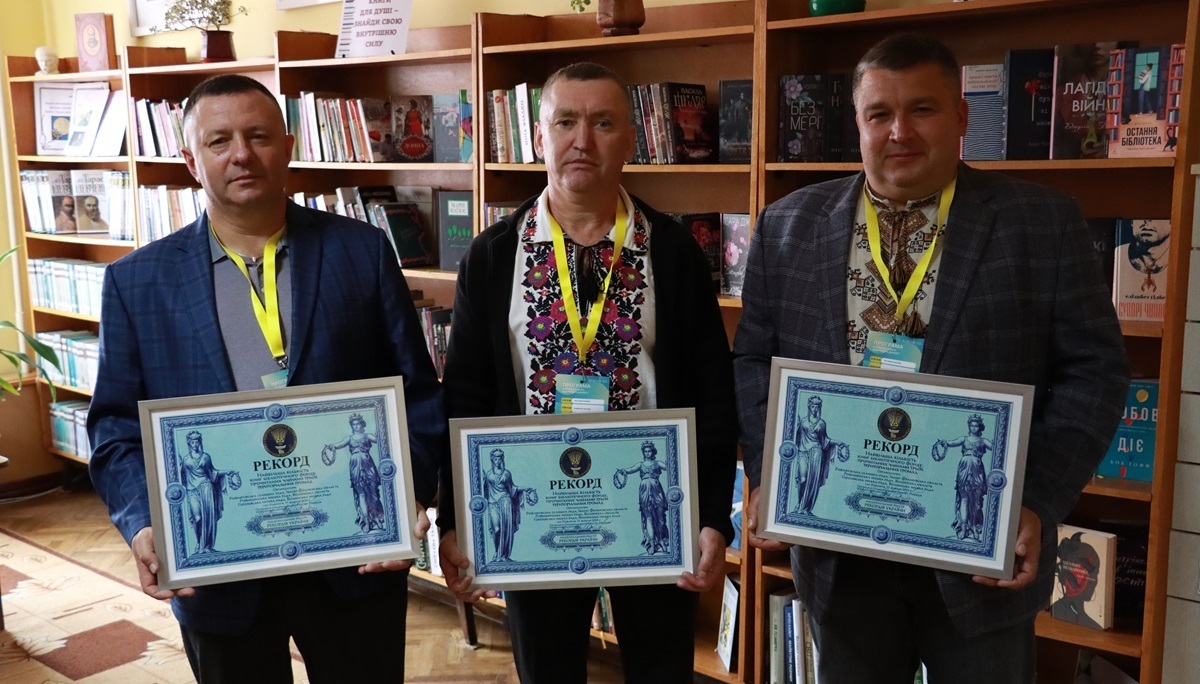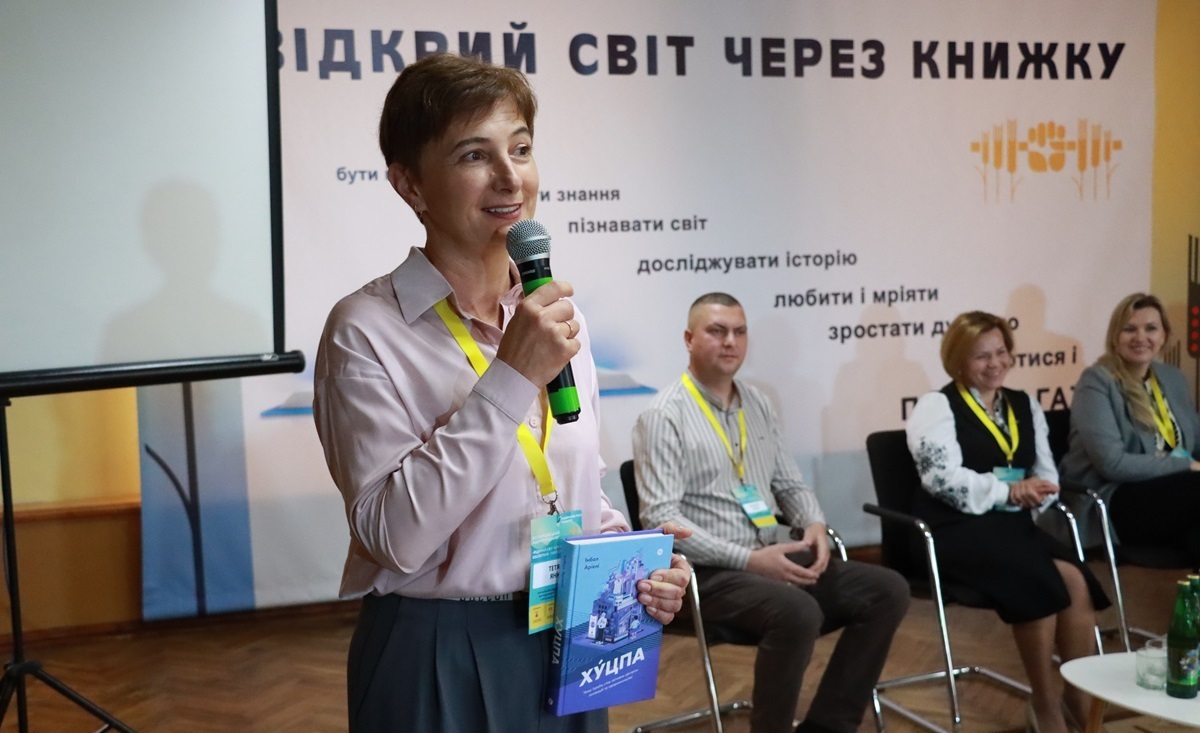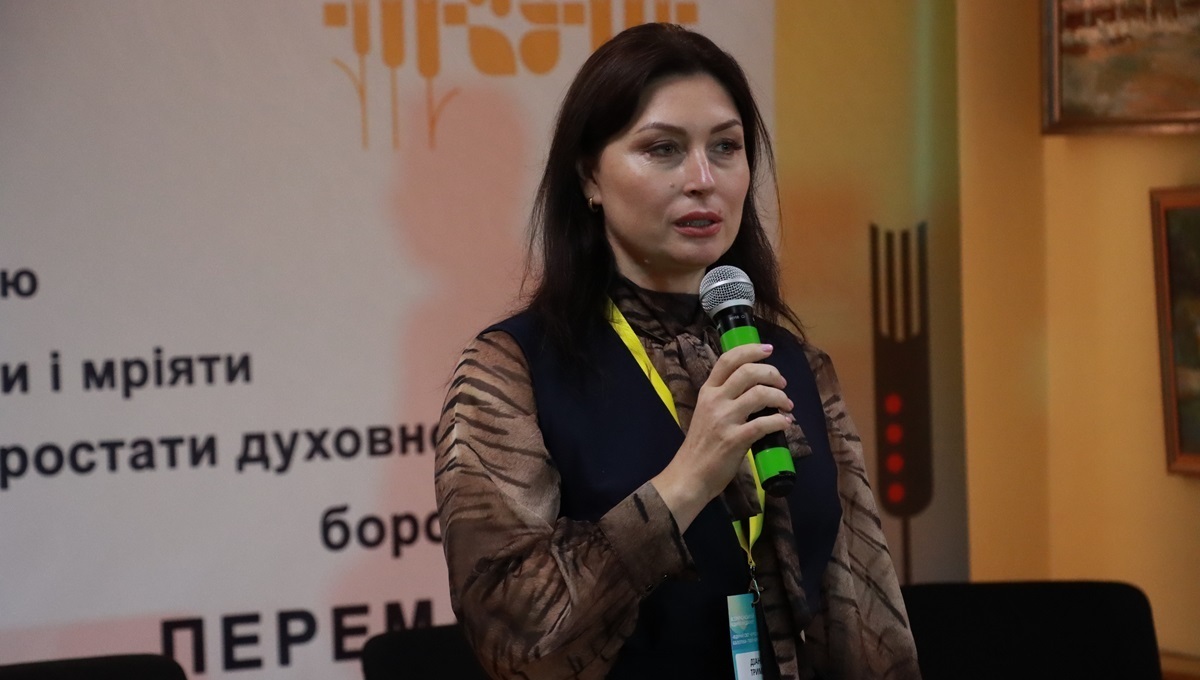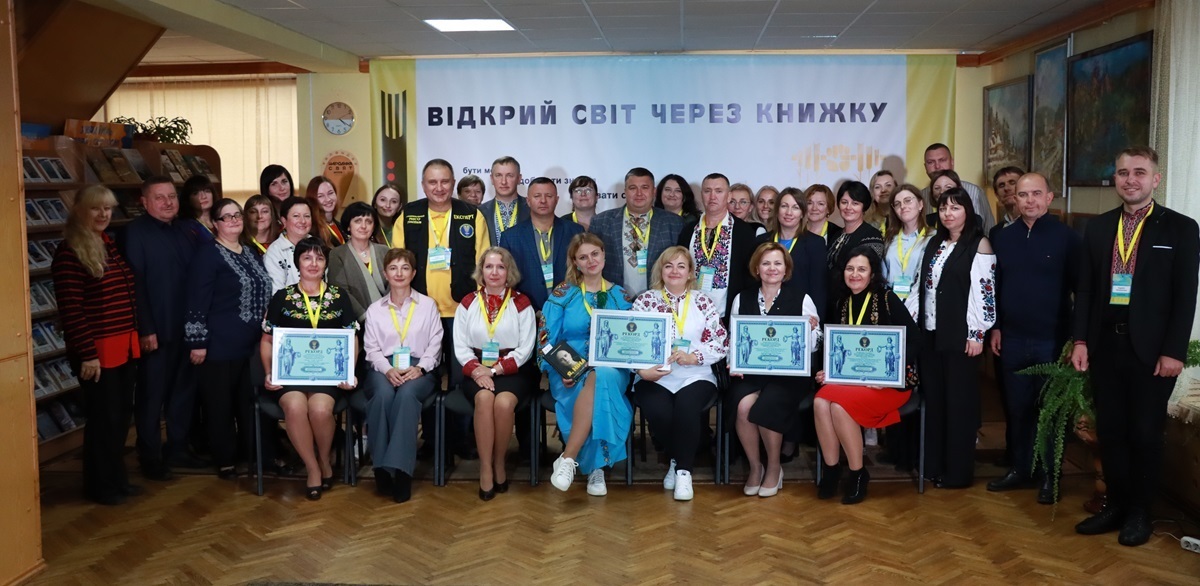Three communities set a record and got thousands of residents to fall in love with reading
On October 11, 2024, Horokhiv and Rozhyshche in Volyn Oblast, and Rozhniativ in Ivano-Frankivsk Oblast set a national record by reading the most books from local libraries.. A total of 3,227 residents from three communities read an impressive 31,384 books.
The most impressive aspect was not just the record itself but how these communities managed to engage so many people. We share with you a step-by-step guide:
Step 1: Find partners
In fact, setting a record is just one of the points on the communities' journey to improving services. First, Rozhyshche and Rozhnyativ decided to work together to improve socio-economic and cultural development in their communities. Due to the full-scale war, it became harder for communities to improve services independently because of a lack of funds, staff, and infrastructure destruction. One effective solution was inter-municipal cooperation, where communities united efforts (find more about the advantages and outcomes of such cooperation here).
On March 7, 2024, with the support of the USAID HOVERLA Activity, the two communities signed an inter-municipal cooperation agreement and agreed to jointly digitize their library collections by creating the online platform "KREDENS." This platform aims to organize book records better, improve access for residents (especially military personnel and their families), cooperate with publishers and authors, and announce new releases.
The communities even applied for a grant from the Ukrainian Cultural Foundation and ranked in the top 20 out of over 300 participants. Although they did not receive funding, they persisted, agreeing to cover the expenses themselves. To make it easier, they invited the Horokhiv community to join the cooperation (Horokhiv is currently in the process of joining this agreement).
As a result, Rozhyshche, Rozhniativ, and Horokhiv allocated UAH 129,000 each from their budgets to pay for the creation of the digital platform, cloud storage, and the purchase of computers, printers, and barcode scanners for their public libraries. The "KREDENS" platform is scheduled to be presented on November 21, 2024, in Horokhiv.
Step 2: Come up with a bold idea
To ensure that the platform launch did not go unnoticed by residents and became a significant event, the communities decided on a creative "warm-up" by drawing attention to the libraries, familiarizing residents with books, and changing the narrative about unpopular libraries to make reading trendy.
Inspired by the USAID HOVERLA Activity idea, the partners decided to submit a joint application to the National Register of Records of Ukraine, creating a precedent not only in their communities but also making noise across Ukraine. The intent was serious enough that even the Ministry of Culture and Strategic Communications agreed to participate in recording the event.
Step 3: Create a public outcry
Their goal was to read 30,000 books from July to September, and all possible "marketing tools" were employed:
- Communities updated libraries with about a hundred new Ukrainian books from their budgets.
- Local council and budget institution employees started reading first, leading by example.
- They held ceremonial record openings, inviting writers, priests, and other thought leaders.
- Special photo zones were set up at events for residents to take pictures and share their photos for a prize.
- Books were delivered to hospitals so that people could make use of their time while bedridden.
- Local bloggers were involved: for instance, in Rozhyshche, a local YouTube blogger who promotes reading participated.
"When I saw piles of library books on the desks of city council employees, I realized that the race for the record had begun! And I went to the library myself to get a book," shared Vyacheslav Polishchuk, Mayor of Rozhyshche.
Before long, word of mouth had kicked in — people couldn't stop talking about it.
"When I was commuting to work, everyone on the bus was talking not about politics or the weather, but about the record and books. All I heard was: 'Have you been to the library?', 'Are you participating in the record?', 'What are you reading?' It was public resonance!" recalls Halyna Kurtash, head of the Department of Culture at the Rozhniativ Village Council.
In the end, they even exceeded their goal — instead of 30,000, they read over 31,000 books.
Step 4: Play by the rules of the game
To ensure everything was clear and transparent, the entire process was documented. Younger participants registered through a Google form, while older residents signed paper lists. Each participant filled out a special form where they recorded the books they read, the time spent, their impressions, and favorite quotes.
Librarians checked these forms to ensure there was no plagiarism from the internet or false reviews. Afterward, the National Register of Records of Ukraine spent an entire week verifying the submitted materials.
"I’ve never seen such an interesting record like this: over 30,000 books read in a week!” shared record registrar Pavlo Horishevskyi.
During the record-setting event, Diana Tryma, Director of the Department of Restoration and Cultural Reintegration of De-occupied Territories at the Ministry of Culture and Strategic Communications, said:
"Community participation in such a record is not just about promoting books. This is the first successful case in Ukraine where communities united around culture. The strength of the country lies in the unity of its communities. They shape the national space. No state regulations will drive community development better than the conscious choice of its residents. When a community prioritizes culture, it reflects a certain spiritual level of its people."
"Most of our residents have now discovered the community library and what it truly offers! This will encourage more people in our community to read," added Vyacheslav Polishchuk, Mayor of Rozhyshche.
During the record-setting event in Rozhniativ, communities held an all-Ukrainian open dialogue named Discover the World through a Book: The Library — Your Key to Knowledge. The discussion focused on the role of inter-municipal cooperation in setting the record, the importance of libraries in communities, the content and curation of their collections, and how this strengthens the patriotic education of Ukrainian youth and counters Russian disinformation.
As a result, the communities not only set a record but also, with the USAID HOVERLA Activity support, initiated the creation of a new record category in the National Register of Records — "Records in Partnership," which the project's experts plan to launch soon.
The USAID HOVERLA Activity has helped partner communities sign 50 inter-municipal cooperation agreements, 39 of which have been approved by the Ministry of Communities and Territories Development of Ukraine. Through these efforts, the project supports the Ministry in promoting comprehensive community development, helps optimize resource use, fosters cultural diversity, stimulates economic growth, and addresses environmental issues, enabling the creation of large-scale projects.
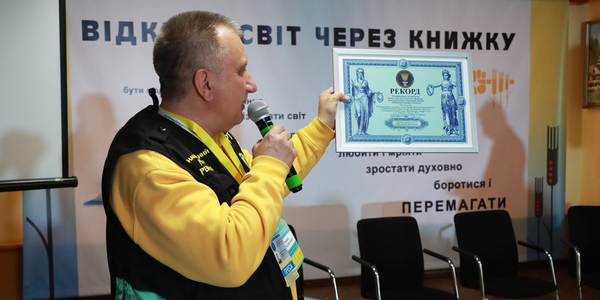
Tags:
cooperation culture participation of citizens
Область:
Волинська область Івано-Франківська областьГромади:
Горохівська територіальна громада Рожищенська територіальна громада Рожнятівська територіальна громадаSource:
USAID HOVERLA
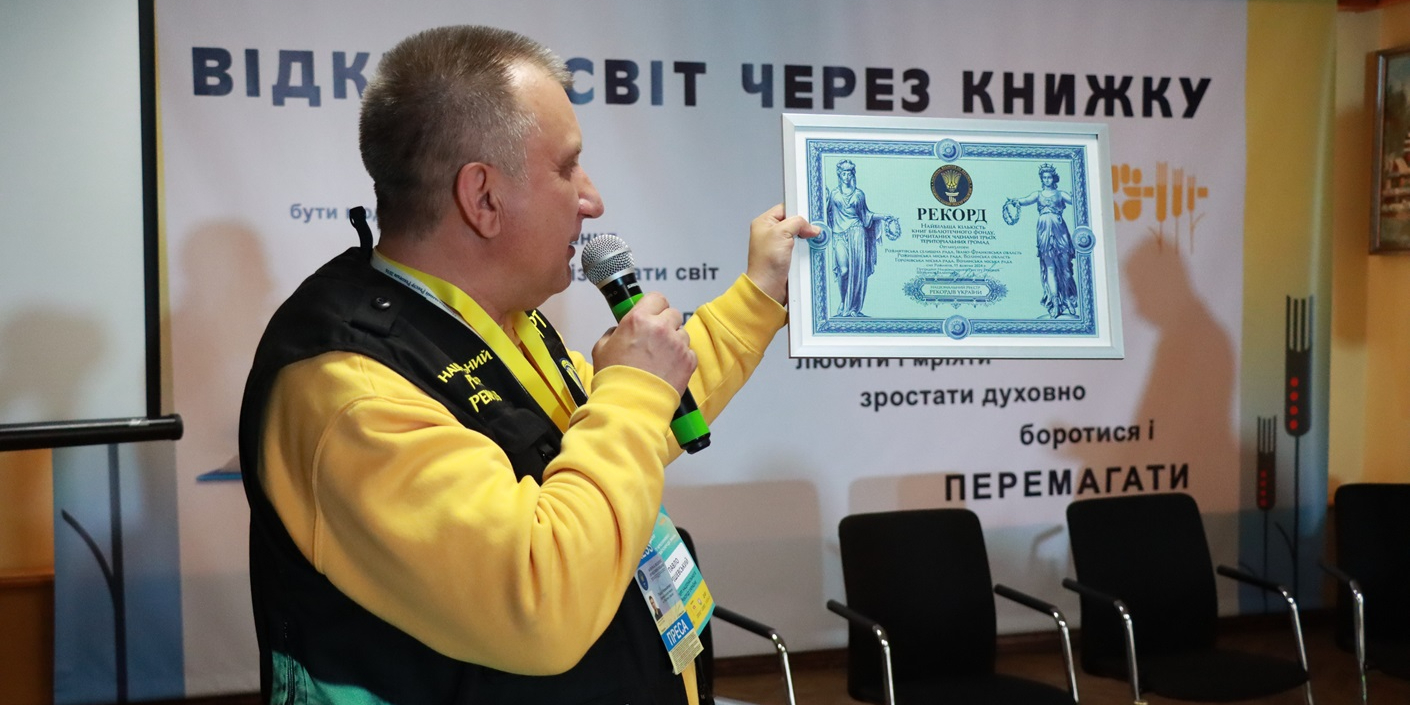
17 February 2026
Ресурсоменеджмент для громад: що (не)робити з відходами, аби вони стали ресурсом
Ресурсоменеджмент для громад: що (не)робити з...
Той, хто володіє ресурсами, володіє світом. Звична логіка керівництва країн, які владу вимірюють покладами...
17 February 2026
Sylna hromada: Systemic recovery as the foundation for Ukrainian resilience
Sylna hromada: Systemic recovery as the...
Four years of Russia's full-scale war against Ukraine have led to the massive destruction of critical infrastructure,...
17 February 2026
Уряд затвердив порядок надання субвенції на розвиток ветеранських просторів у 2026 році
Уряд затвердив порядок надання субвенції на...
11 лютого 2026 року Кабінет Міністрів України ухвалив Постанову №180, якою затверджено Порядок та умови надання у...
16 February 2026
«Гранти – не манна небесна»: як прикордонна...
Коропська громада, що на Чернігівщині, розташована в зоні підвищеної небезпеки через близькість до кордону з рф. Тут...
